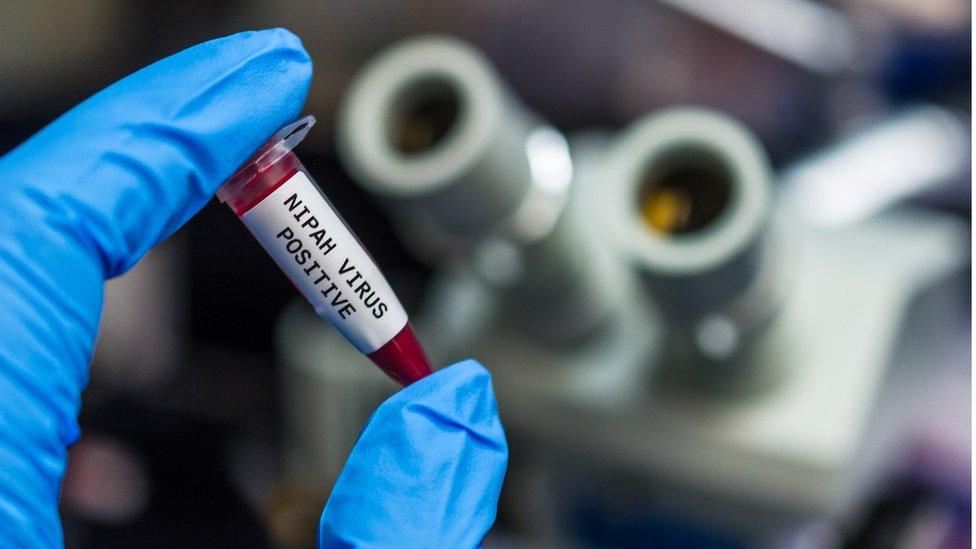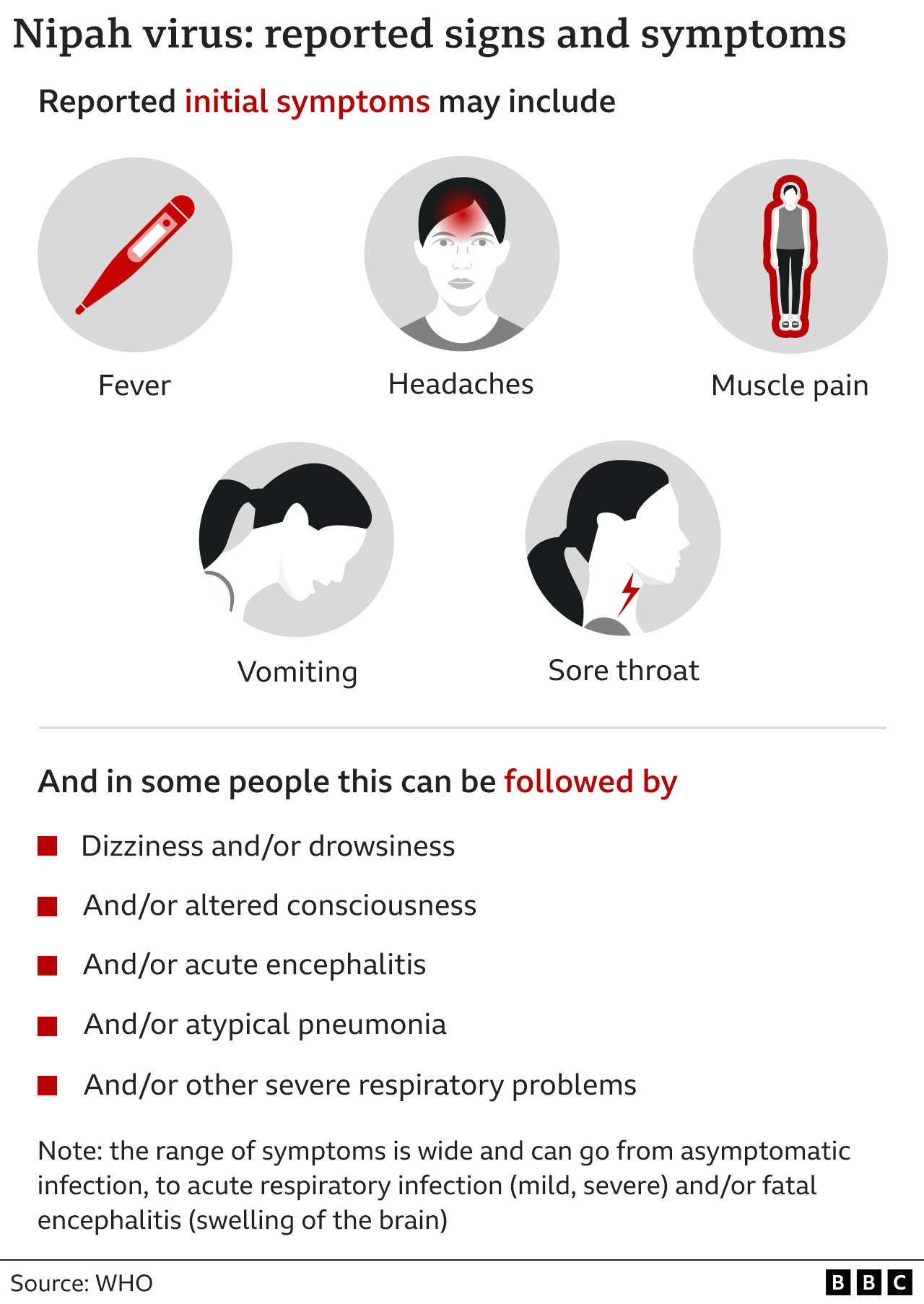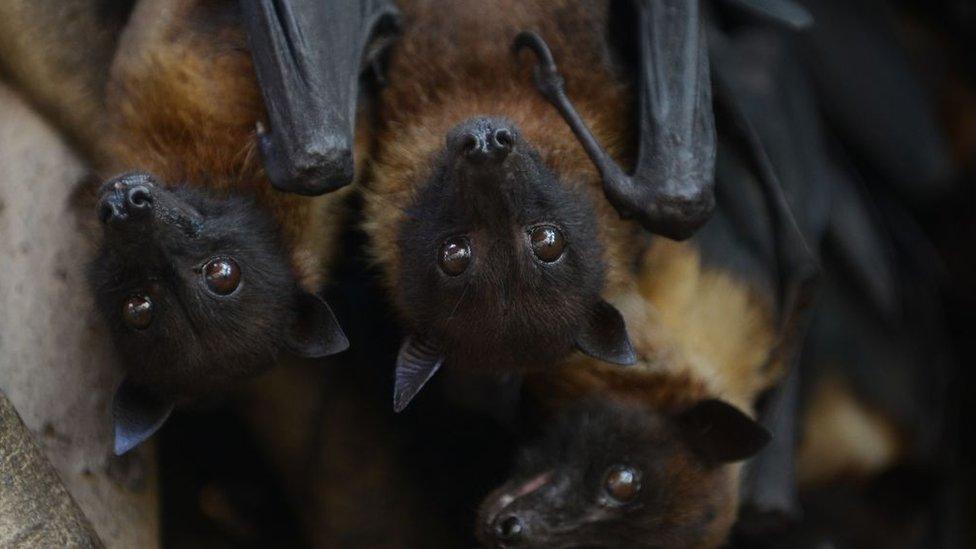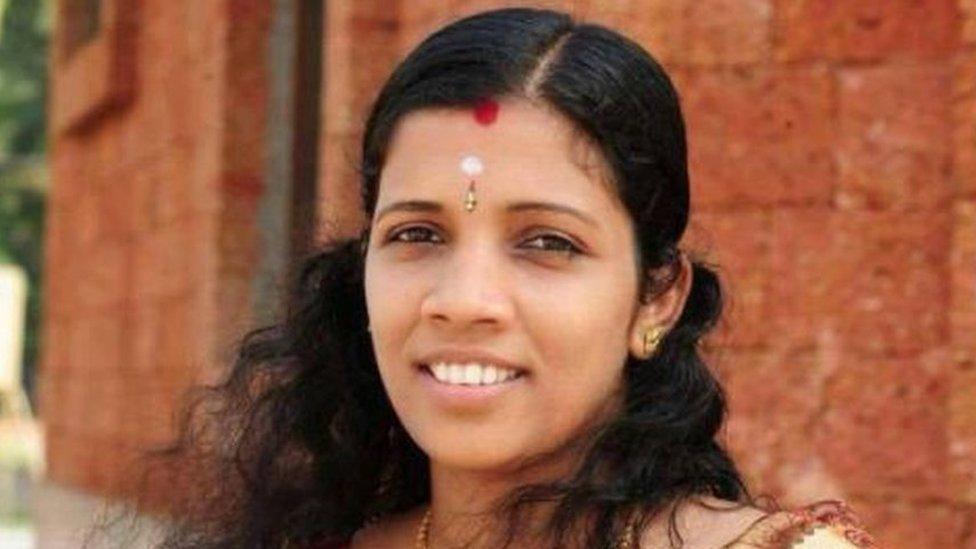Nipah: India's Kerala state tests hundreds after fifth case
- Published

The Nipah virus is a zoonotic disease that can be transmitted from some animals to humans
Schools and offices have been shut in some parts of the southern Indian state of Kerala after five cases of the rare Nipah virus were confirmed.
Two people have died so far, while three others, including a child, are being treated in hospital.
Authorities said on Wednesday that they have tested 706 people, including 153 health workers, to check the spread of the virus. They are awaiting results.
The is the fourth Nipah outbreak in Kerala since 2018.
All the cases have been reported in Kozhikode district in northern Kerala. One of the deaths occurred earlier this month while the other took place on 30 August.
The state's chief minister, Pinarayi Vijayan, has asked people to avoid public gatherings in Kozhikode for the next 10 days.
He said his government was taking the deaths "very seriously" and asked people to exercise caution by wearing face masks and visit hospitals only for emergencies.
But he added that there was no reason to panic as people who were in contact with those who had died were undergoing treatment.
The Nipah virus infection is a "zoonotic illness" transmitted from animals like pigs and fruit bats to humans, according to the World Health Organization.
It can also be transmitted through contaminated food and through contact with an infected person.
People who contract the virus sometimes show no noticeable symptoms, while others show signs of acute respiratory problems. In severe cases, a Nipah infection can result in foetal encephalitis - a serious condition that affects the brain.
The mortality rate among those who contract the virus is high as there is no medicine or vaccine available to treat the infection. Treatment is limited to managing symptoms and supportive care.

India's Health Minister Mansukh Mandaviya said on Tuesday that the federal government had sent a team of experts to Kerala to assess the situation and assist the state government.
The state's Health Minister Veena George said on Wednesday that tests had shown that the virus strain in the current outbreak was the same as the one found in Bangladesh earlier.
"Public movement has been restricted in parts of the state to contain the medical crisis," she said, according to Reuters.
She also said that teams from the National Institute of Virology would set up a mobile lab at Kozhikode Medical College to test for the virus and carry out surveys on bats.
The state government has set up a control room in Kozhikode to monitor the situation and health workers have been instructed to follow infection control protocols.
Kozhikode reported its first - and worst - Nipah outbreak in 2018 when 17 of the 18 confirmed cases died.
In 2019, one case was reported in Ernakulam district and the patient recovered. But in 2021, a 12-year-old infected boy in Chathamangalam village died.
An investigation published by Reuters in May, external found that Kerala, which is a tropical state and is witnessing rapid urbanisation and rapid tree loss, created "ideal conditions for a virus like Nipah to emerge".
Experts say that due to habitat loss, animals are living in closer proximity to humans and this helps the virus to jump from animals to humans.
BBC News India is now on YouTube. Click here, external to subscribe and watch our documentaries, explainers and features.

Read more India stories from the BBC:

- Published21 May 2018

- Published22 May 2018
